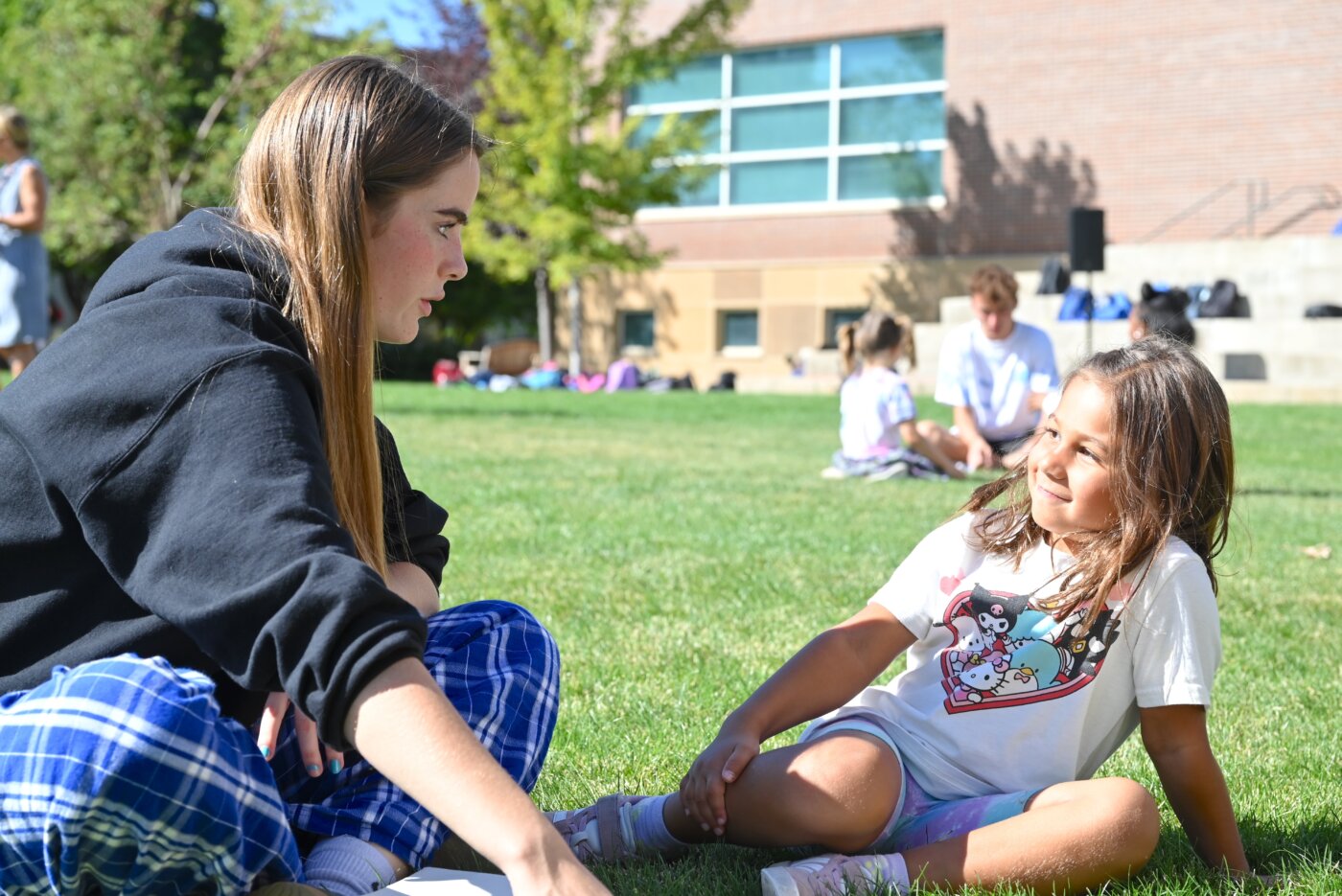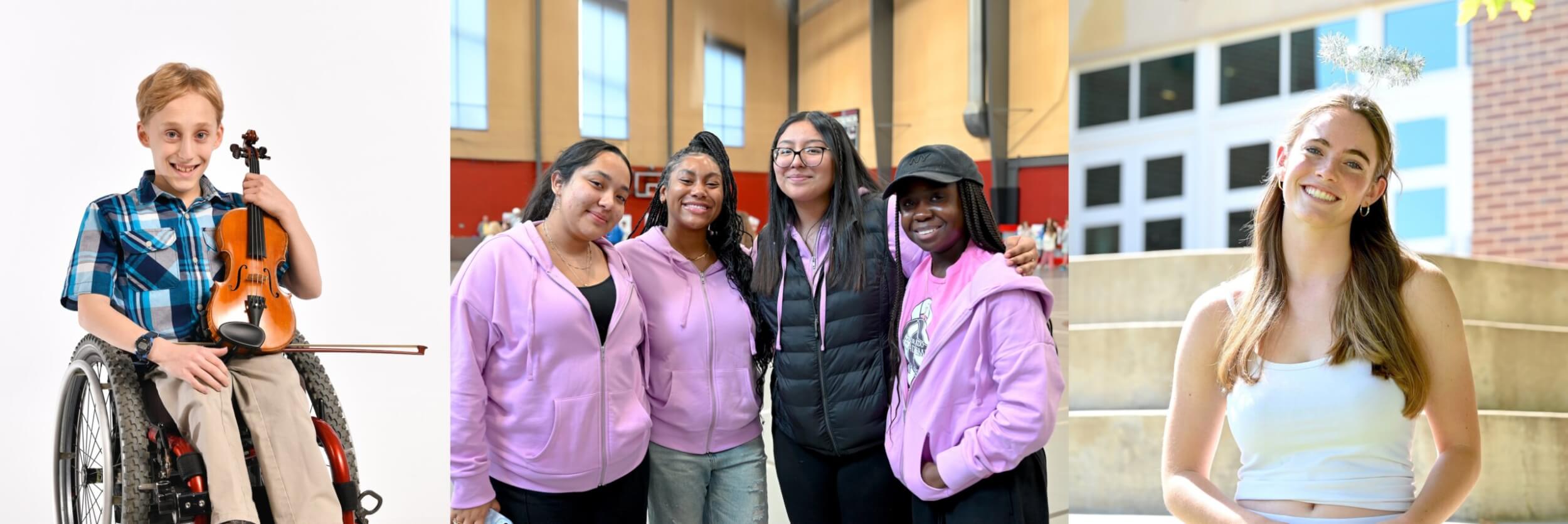“For as long as I can remember, I have always been a person who loves to love,” Leah Blake revealed to her Upper School peers in the first Senior Speech of the school year, on September 5, 2024. “I love the little things and the big things, and everything in between.”
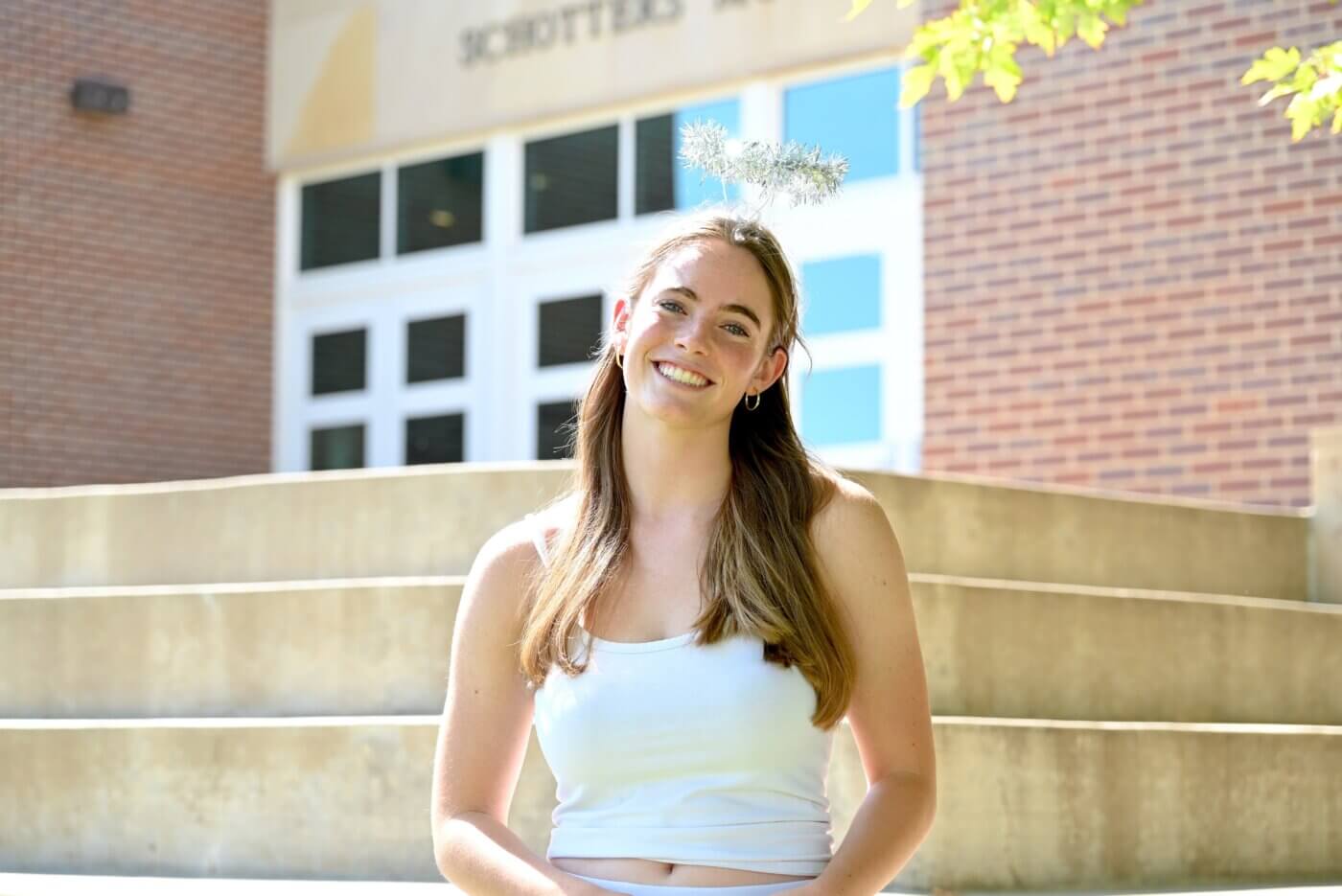
As Senior Class Dean Ali Kittle noted when she welcomed Blake to the stage in the Leach Center for the Performing Arts, Senior Speeches have been a Colorado Academy institution for 10 years. Throughout that time, Twelfth Graders have volunteered to take to a microphone during an Upper School Town Hall to share something that matters—from the monumental to the seemingly trivial. Senior Speeches aren’t a requirement; they are simply an open invitation for anyone who wants to stand up in front of their community.
“Some speeches are uplifting and positive in nature, while others are heavier, diving into more serious topics,” Kittle explains. “Some speeches consist of lessons learned, while others tell of a moment in time that possibly changed someone’s belief system or altered their trajectory. Some speeches might take an unpopular stance, ask difficult questions, or simply offer food for the soul. These speeches sit differently for us all, and that’s okay.”
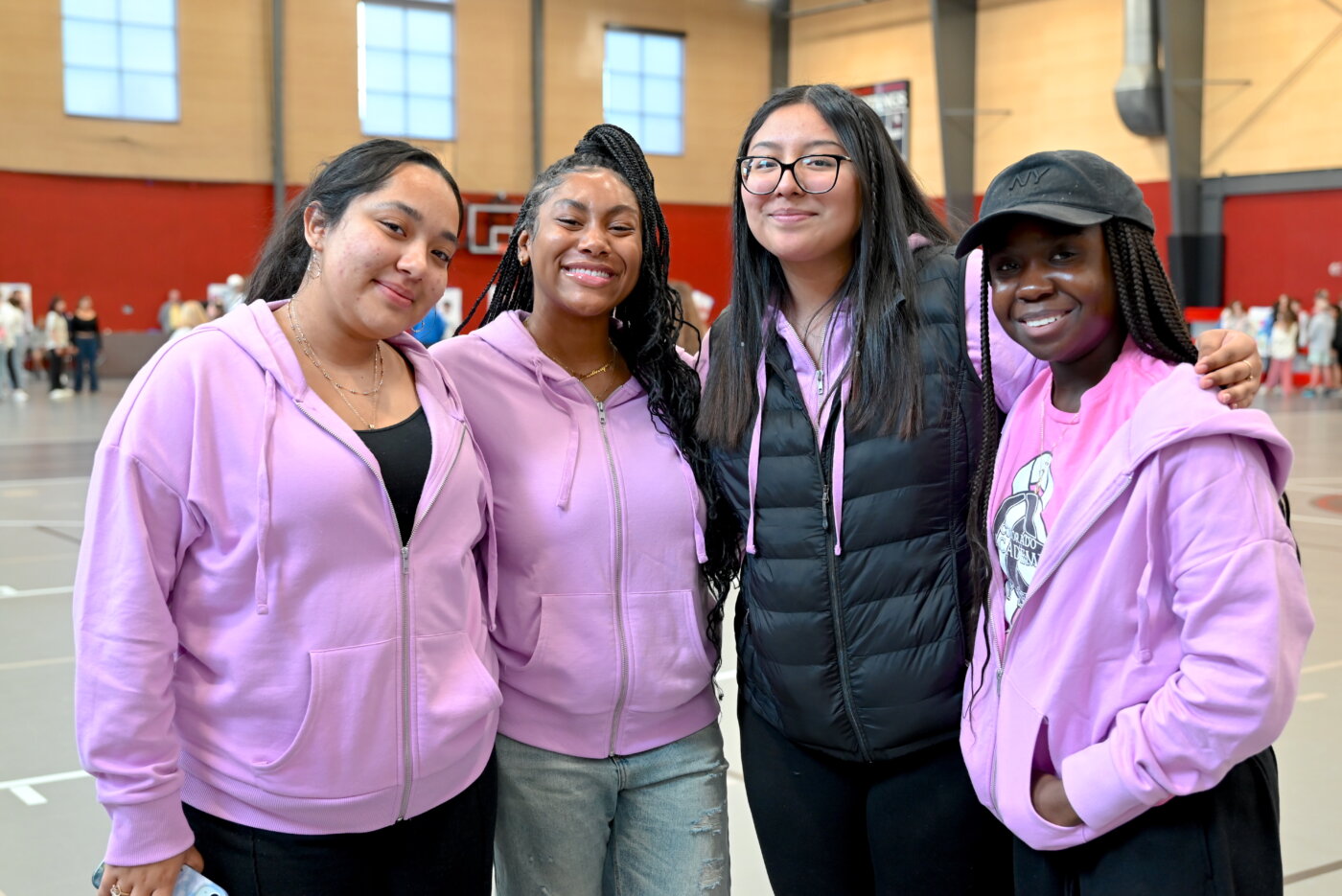
In 2024, Seniors Neela Okurut, Yaris MontesDeOca-Desiderio, Domonique Megginson, and Yahaira Nuñez-Hernandez gave a special Senior Speech presentation for faculty and staff members on a professional development day, during which they urged, “Think back to what brought you here.” The students had created their piece especially for this audience in collaboration with Penumbra Theatre Company, which taps into the spiritual power of Black expression to advance racial healing.
In verse form, the four shared stories from their own lives, experiences that brought them to where they are today: the rage and fear kept hidden behind a calm facade; the childhood language barrier perceived by others as a personal flaw; the joy and resilience that survive despite the continued existence of racism; and the worry, even at a school like CA, that students of color may be tokens only. “When we came to CA, we constantly thought about changing ourselves. But when we realized it was the place around us that needed to change, why did we feel alone?”
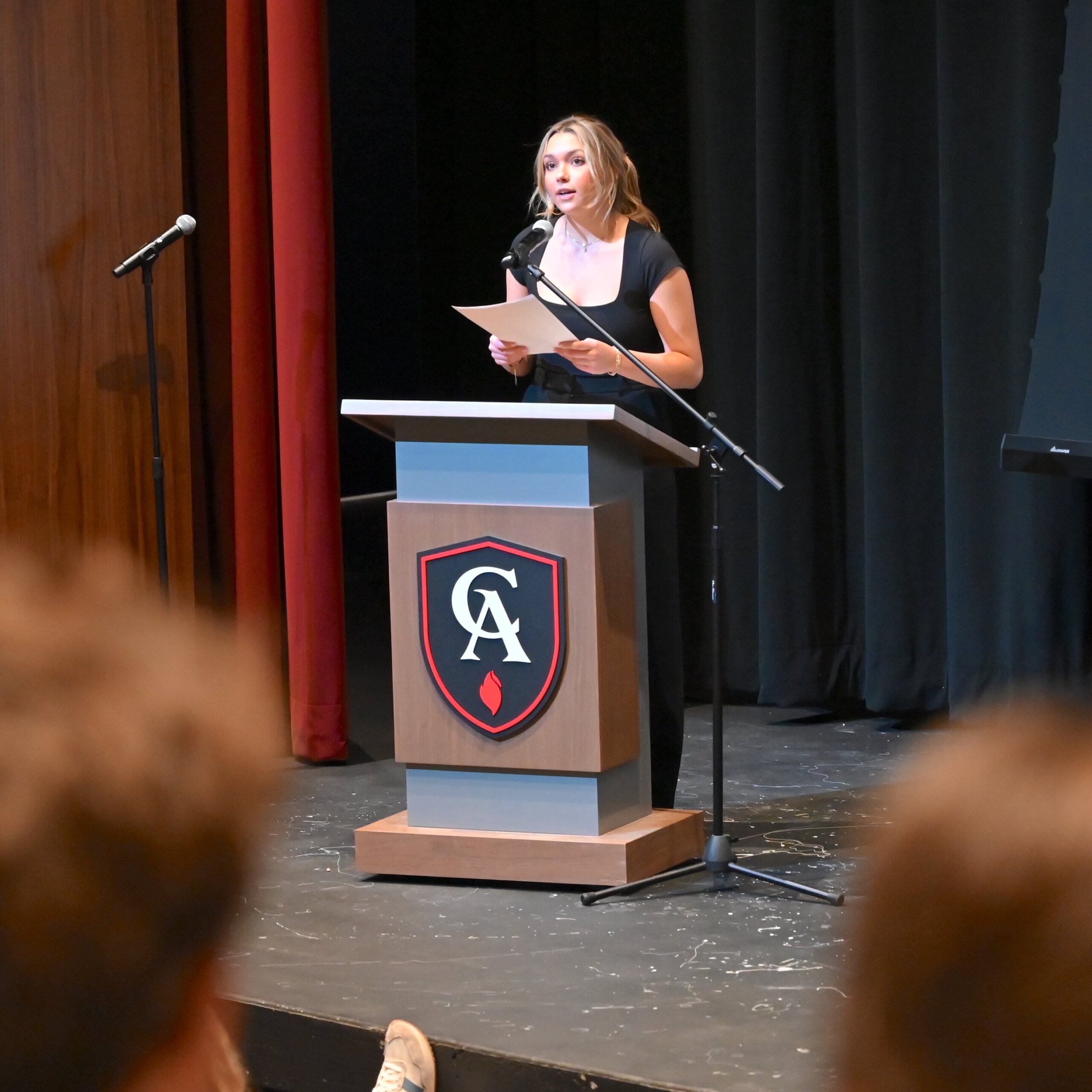
In 2023, students were riveted as Zoe Cope related how she had been at a graduation celebration at a friend’s house when gunfire erupted. Hiding herself in a closet, she feared for her life. After the incident was over, “I found myself stuck in a memory that I couldn’t stop reliving day and night. One week after the event, I learned no one died, and yet, the stranger is still out there today. This man brought a living hell into that house and permanently changed me and my friends.” Cope’s reflection was part of a much larger discussion at CA about gun violence and students’ lived experiences with it; an Upper School walkout that featured other student voices bringing attention to the issue occurred not long after Cope’s speech.
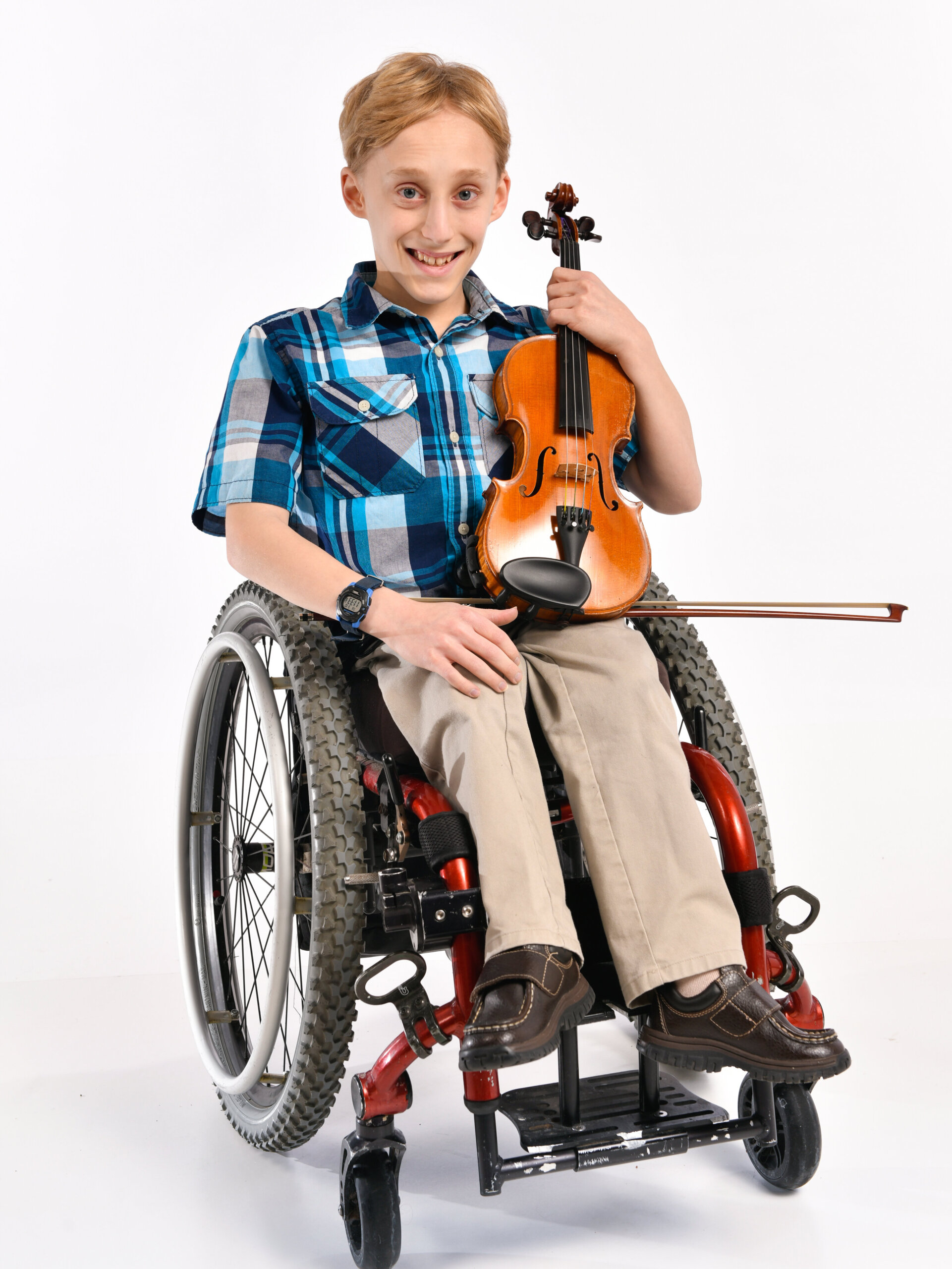
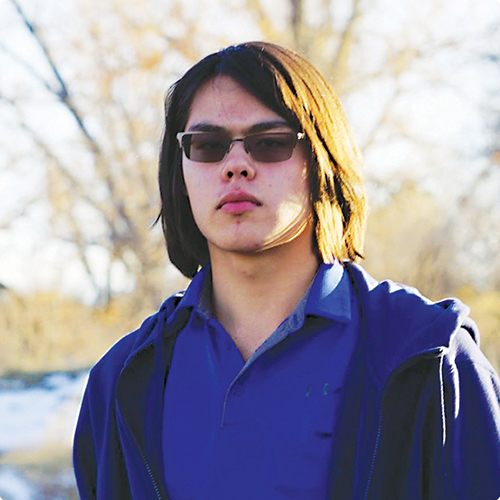
The year prior, Casey Myers came to the stage in his wheelchair and asked his peers to close their eyes and listen as he described his life with paraplegia below the knees. “I do everything, from winning the school pushup contest, to going to the bottom of Bryce Canyon and back up, to traversing the canals of Venice, Italy. I’m a huge theater/Disney/Marvel nerd, I play the violin, and I can do a wheelie while spinning. It’s amazing what we discover when we take the time to get to know someone beyond the surface.”
A few years earlier, Holden Ryu ’20 had told his peers, “Not that long ago, I considered myself a failure. Every day, I’d wake up and ask myself, ‘What am I doing with the amazing opportunities I’ve been given?’” It took an ill-fated carp-hunting expedition at a local pond to renew a passion for fishing, a pursuit that led to him learning the even more rewarding stories of people he met along the way. “A simple hobby led me to the discovery of new interests, a job opportunity, connections with incredible individuals, and an infinite number of new possibilities.”
And a couple of years before that, Erin McCoy ’18 had shared her plan to break out of the confines of her small friend group by sitting at a corner table on the second floor of the Upper School every day to meet new people. “Surprisingly, someone would always stop by and say ‘Hi’ to me,” she related, “and I would begin to talk to them. I remember having conversations about the stress of high school, college, restaurants around Denver, the impact of technology on relationships, and even something as simple as how we were doing that day. What was so cool about that spot was that every time someone would walk by, I would feel our connection growing. I had never felt so supported and happy at school.”
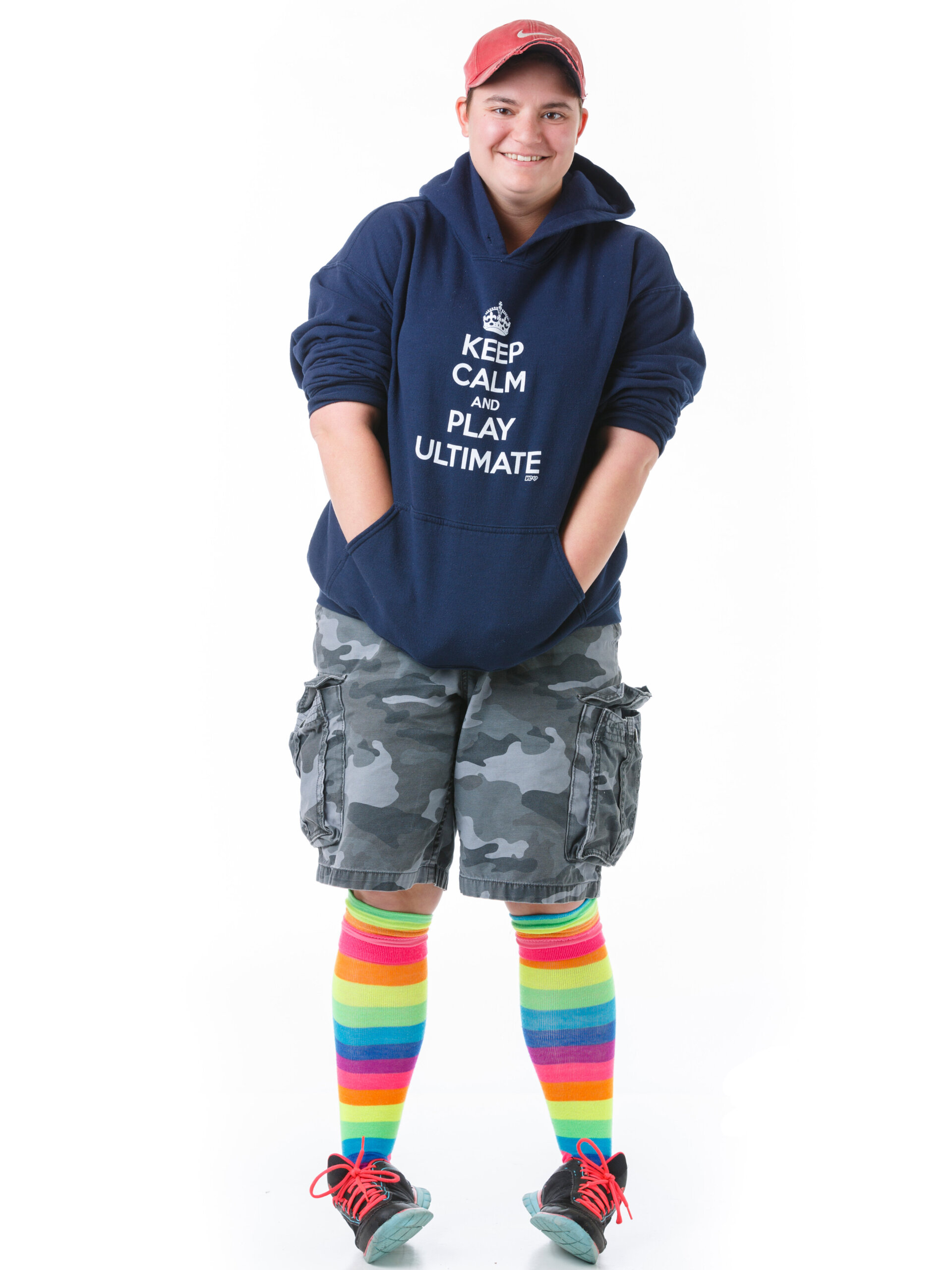
In the very first CA Senior Speech, in October 2014, Kersten Butler ’15 opened up about her depression and being diagnosed with bipolar disorder. “My mom was the one who first noticed it. She said that for an 11-year-old girl, I was obviously depressed. I had dark thoughts. I would say dark things. It was obvious to my mom that there was something wrong.” But, she told her peers, “I like to say that I’m not bipolar. I say that I have bipolar and that I refuse to let it define me.” Butler had kept her diagnosis a secret for years, but “was tired of being voiceless.”
Now, on stage, Blake continued, “I love rainy days, I love my friends, I love the feeling of new shoes, and I love my family. We all have things in our lives that are small slices of the people we are, small slices that shape our values, the connections we have with others, and the way that people view us. But those are all of our internal loves, the ones that we feel so deeply and so genuinely that we don’t need to share them with anyone else. It’s simply our own love to love. And then there are the loves that are so powerful and formidable that we feel we have nothing else to do but share them with others.”
Seniors work with a faculty advisor to craft their speeches. Blake sought guidance from English instructor Dr. Jon Vogels and Director of Student Experience and social studies Preceptor Emily Pérez to hone her piece over the first weeks of the school year. “We acknowledge that Seniors have a lot on their plate,” Kittle makes clear. “So we ensure members of the grade can find the time and space to prepare something during their busy days and deliver it when they and their speeches are ready.”
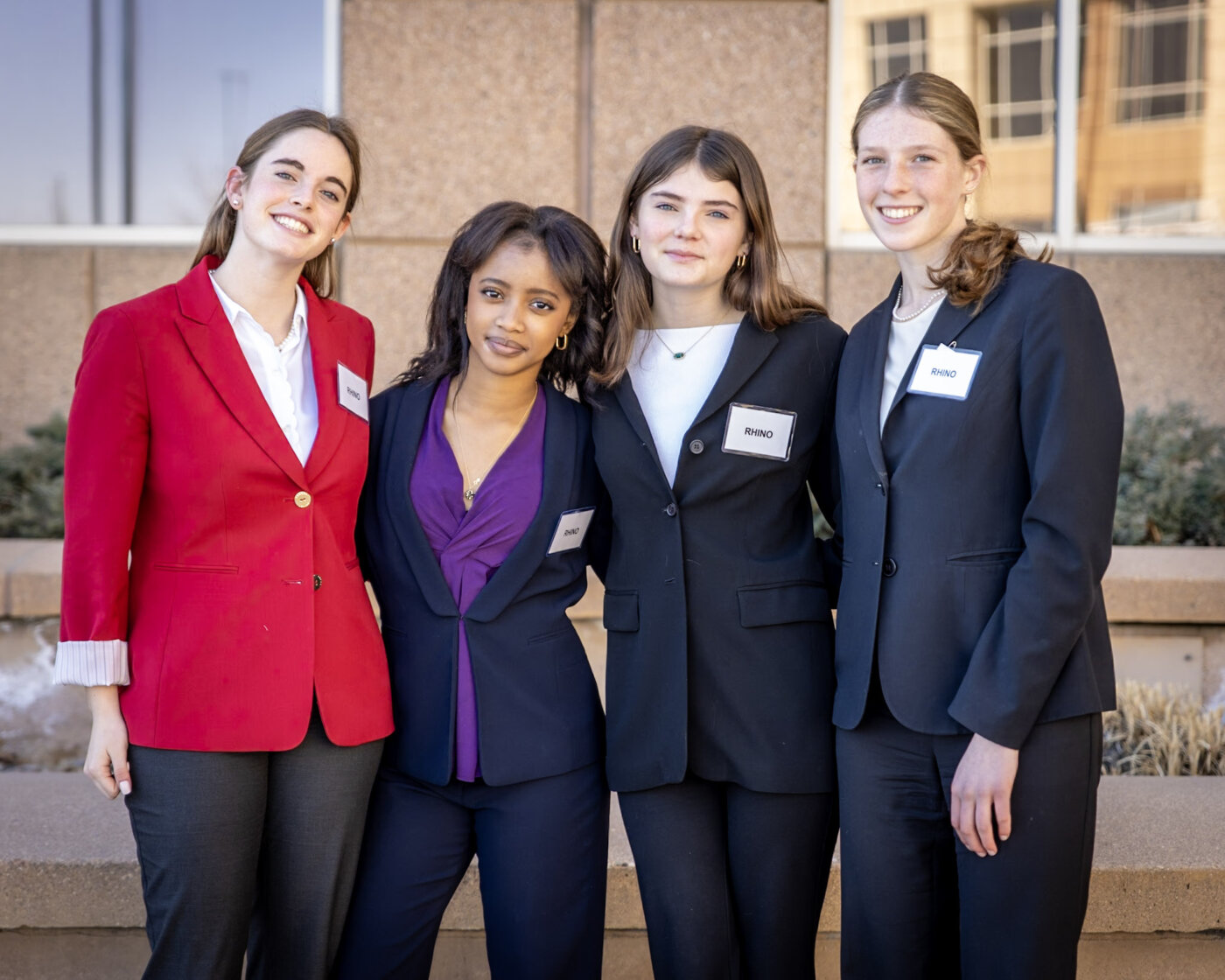
For audience members whom she hadn’t met, Blake went on to describe herself as “a member of the Mock Trial team and the Volleyball team; I sing in the Choir, and I’ve been in the musical a couple of times. But in most cases, that’s not what I’m known for around here. People know me as the girl who can be heard singing in the locker room, or talking about Taylor Swift during class. People know me as the girl who got up in front of the entire school as a Seventh Grader to rap the lyrics of the song ‘Guns and Ships,’ from Hamilton.”
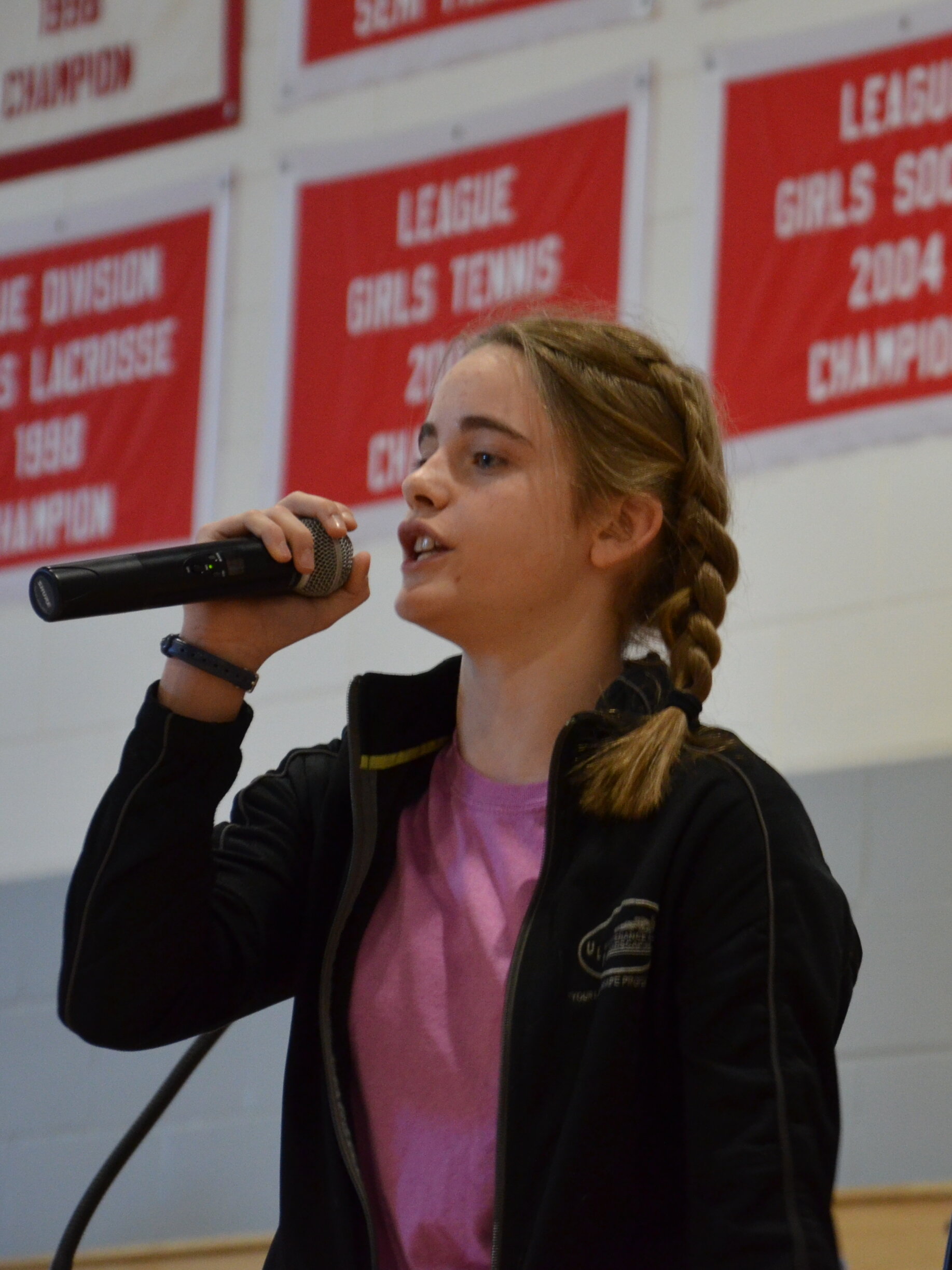
That performance during an All-School Assembly was one of the first times she ever felt she was a truly genuine person, Blake explained. “I discovered the mercurial high that came from not suppressing myself, and from then on, I swore I would never hide who I truly was.”
Ever since Middle School, she recounted, her excitement about musicals or Taylor Swift had been met with judgment and laughed at. “Many didn’t understand why I was so excited about these things. It made me question myself, made me wonder if I should keep my passions hidden away. After all, opening up about what you love feels like exposing a more real part of yourself, hoping that others will accept it. There is something so incredibly vulnerable about telling people, ‘This is a part of me, and this is something I love. Can I share it with you?’”
“But here’s a secret that I’ll share with you,” Blake continued. “Being comfortable in your own skin and sharing what you love is something to be proud of, not something to hide away. I’m lucky enough to have found the most perfect group of friends who love me and accept me for who I am. It’s like taking a breath of fresh air every time I’m with them. I can’t tell you how good it feels to be surrounded by people who derive genuine joy from seeing me excited about something. The things we love are what make us unique; they’re the pieces of us that tell our story. By embracing and sharing them, we’re teaching others that it’s okay to be different, it’s okay to be passionate, and it’s okay to be yourself. When we show the world what we love, we’re not just sharing a piece of ourselves—we’re giving others the courage to do the same.”
These days, Blake explained, expressing herself feels almost like second nature. “I used to think twice about wearing certain shirts to school in fear that someone might make fun of me the way they used to. But these days, I wear what I want. These days, I curate my college list based on the things I want to continue being excited about in the future. These days, I smile at the songs I listen to as I know they’re a reflection of me and the things I love. I’m no longer concerned about what others might think. I love the things I love, and that’s something that ~nobody~ should ever be ashamed to share.”
Blake had a message for any audience members who might be struggling in the same way. “Finding what you love and what you’re passionate about is easy. Expressing yourself is the hard part. People won’t always understand why you love the things you do, but that’s okay. It’s not your job to curate your life to fit the agenda of others around you. So I encourage you: Join that club you’ve always wanted to. Try out for the musical or the play. Hum the song that’s been stuck in your head. Wear the clothes that make you happy. Go all out on theme days for your sport. Wear your Taylor Swift shirt loud and proud in the hallways, or rewatch your favorite movie over and over again until you memorize it!”
“Be excited about the things you love,” she urged the audience, “and love the things you’re excited about. Be the person that others see being genuine and being happy. Be the person that your Kindergarten self would look at and say, ‘I want to be them when I grow up.’”
